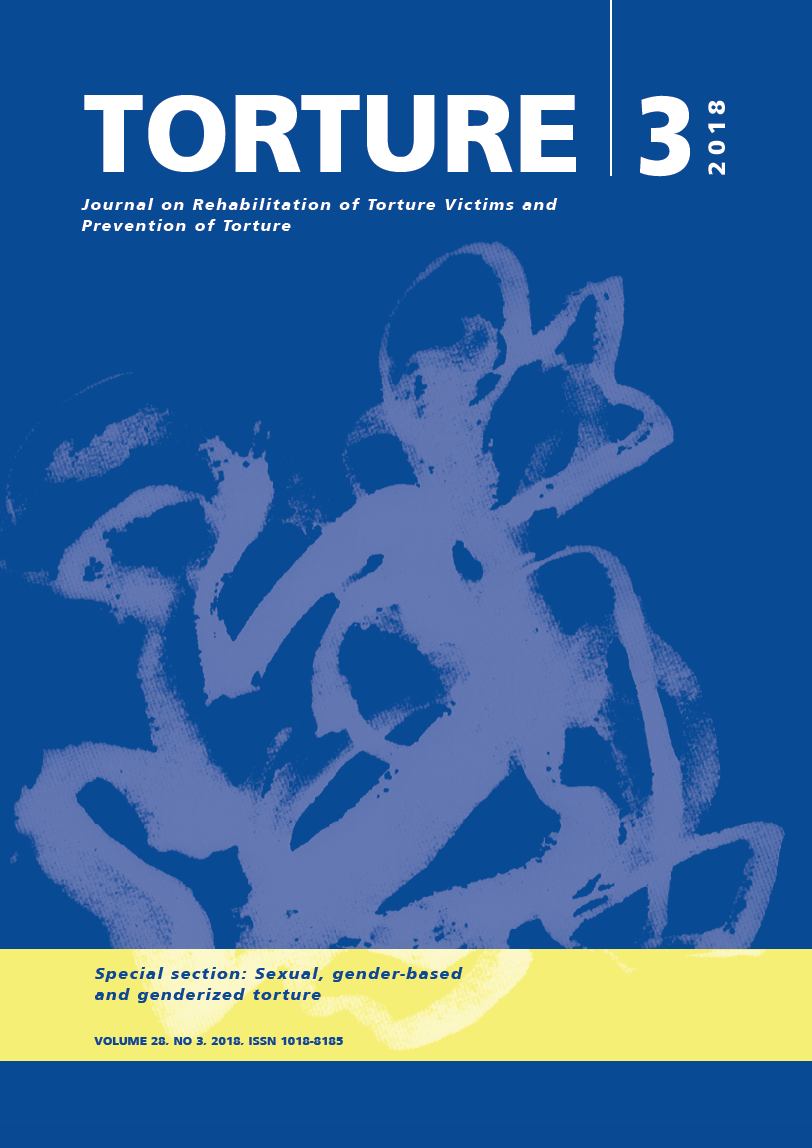The efficacy of traditional cultural practices in the rehabilitation of victims of torture in Nigeria’s Niger Delta
DOI:
https://doi.org/10.7146/torture.v28i3.111184Palabras clave:
Traditional cultural practices, victims of torture, rehabilitation, armed militias, Nigeria, AfricaResumen
Introduction: Traditional methods of purification and healing carried out by healers and priests are of utmost importance for the mental and spiritual rehabilitation of victims of torture and perpetrators. The efficacy of traditional practices in the rehabilitation of victims of torture in Nigeria is examined. Methods: Data is derived from 60 interviews with key informants and eight Focus Group Discussions (FGDs) conducted with victims of torture, youth militias, priests, secret cults, community leaders, women leaders, youth leaders, security agencies, and others, in local communities in the Niger Delta states of Bayelsa and Ilaje, Ondo. Results: By means of reconciliation rituals, both the perpetrators and the victims are re-integrated into the community. The mental healing of victims, who were deeply traumatized by the experiences of torture during violent conflict, is an aspect of community peacebuilding that is at least as important as material reconstruction. Traditional forms of justice and reconciliation that can address the psychosocial trauma of victims of torture may be helpful in the rehabilitation process. Conclusions: This paper suggests that healing and reconciliation rituals have been an essential component of rehabilitation processes in many local communities in the Niger Delta region. International, regional and national actors and institutions must recognize the cultural importance of such rituals and their potential relevance and significance for victims of torture, but their complex dynamics need to be better understood in order to safely and effectively apply them programmatically to achieve reconciliation and rehabilitation outcomes
Descargas
Publicado
Cómo citar
Número
Sección
Licencia
We accept that some authors (e.g. government employees in some countries) are unable to transfer copyright. The Creative Commons Licence Attribution-NonCommercial-NoDerivatives 4.0 International (CC BY-NC-ND 4.0) covers both the Torture Journal and the IRCT web site. The publisher will not put any limitation on the personal freedom of the author to use material contained in the paper in other works which may be published, provided that acknowledgement is made to the original place of publication.


